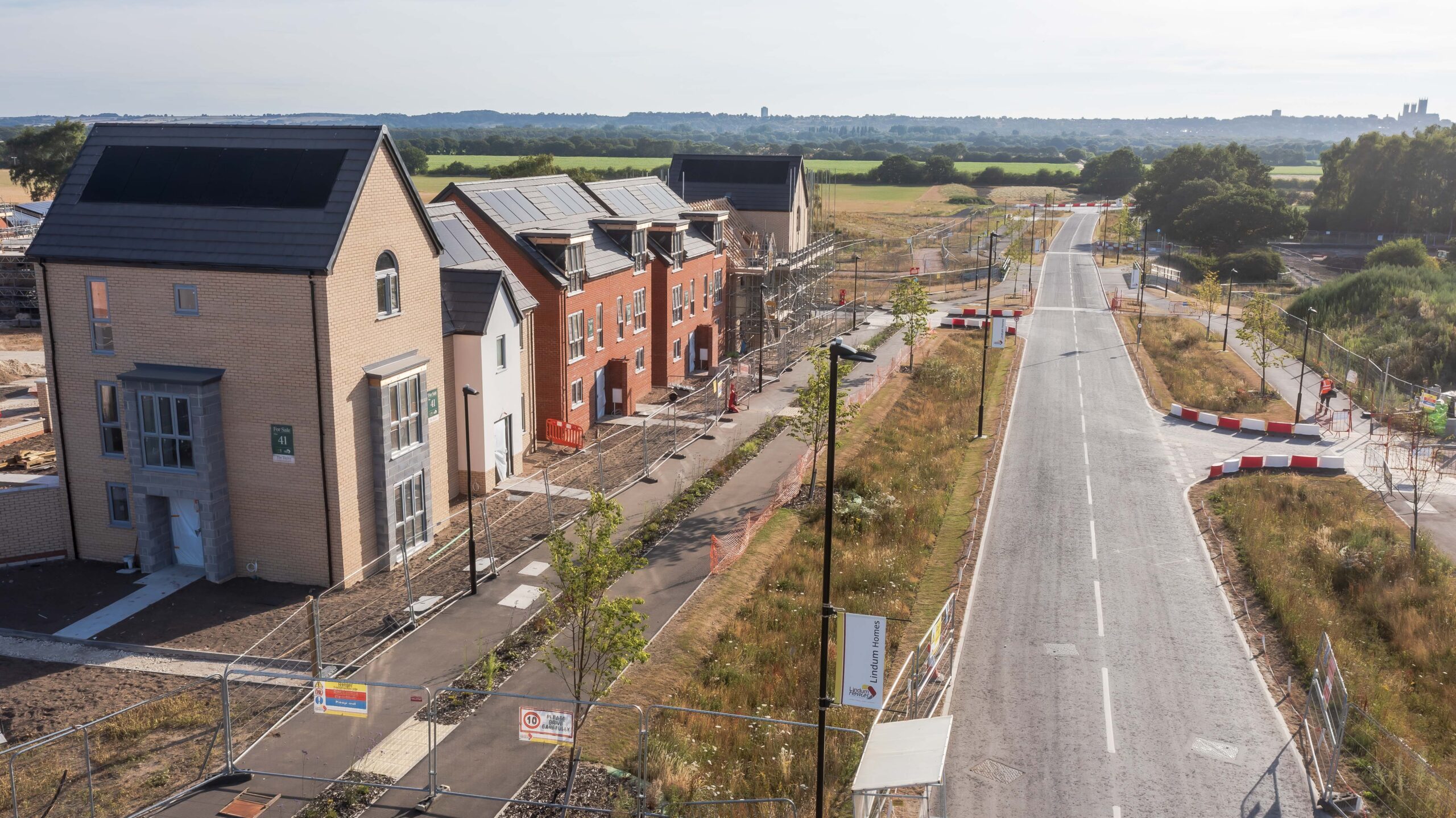Lindum Group has officially become a Pledger to the Carbon Reduction Code for the Built Environment, signalling its commitment to reducing carbon emissions and playing its part in the push towards a more sustainable construction sector.
The Code, which forms part of the Construction Leadership Council’s Construct Zero initiative, offers a structured framework for organisations across the built environment sector to demonstrate action and progress on cutting carbon.
It is referenced in key government policy documents, including the UK Construction Playbook and Promoting Net Zero Carbon and Sustainability in Construction guidance.
By pledging to the Code, Lindum joins a growing number of organisations aligning with national and sector-wide efforts to reduce CO₂ emissions associated with the design, construction, maintenance, operation, and decommissioning of built assets.
Lindum’s commitment covers the four key Pledger-level principles:
- Setting a clear plan to reduce emissions in with national targets by 2045, including annual objectives and published progress updates, with most reductions aimed for by 2030.
- Establishing an interim 2030 target to reduce Scope 1, 2 and, where appropriate, Scope 3 emissions, with offsetting used only as a last resort.
- Publishing a transparent offsetting strategy when offsets are used, detailing the specific schemes and their impact.
- Implementing a carbon literacy programme, ensuring that the leadership team and key personnel influencing the built environment are equipped with the knowledge to drive meaningful change.
Lindum Co-chair Edward Chambers said: “Signing up to the Carbon Reduction Code is an important step in formalising our commitment to a lower-carbon future. Many of our clients have their own environmental targets and strategies. By choosing Lindum, they are working with a contractor that shares their values and can help them meet sustainability requirements.
“In addition, appointing a contractor signed up to the Code helps public sector clients comply with expectations on sustainable procurement and carbon reporting.
“We are pleased to be taking this first step as a Pledger and look forward to deepening our efforts through collaboration across our supply chain and with clients who share our ambitions. It means clients can expect knowledgeable partners who understand the impact of design and construction choices on carbon – and can advise accordingly.
“In short, Lindum’s pledge to the Carbon Reduction Code gives our clients greater confidence that sustainability isn’t an add-on – it’s embedded into how the company operates, plans, and delivers construction projects.”
The Code was initially drafted by the Cross-Industry Working Group at the Centre for Smart Infrastructure and Construction (CSIC) and first launched in 2021. It is designed to complement, rather than replace, existing standards such as PAS 2080, and helps facilitate a collaborative and consistent approach across the construction sector.
Lindum’s decision to join the scheme underscores the company’s growing focus on sustainability and its desire to lead by example within the industry. The business is already making progress on emissions reduction, with renewable energy installations, improved energy monitoring, and a shift toward low-carbon construction methods forming part of its ongoing strategy.
As a Pledger, Lindum will continue to develop its approach and aims to progress further through the Code’s compliance levels – from Pledger to Signatory and ultimately Champion – as it continues its journey to net zero.
Lindum is the first supply chain organisation to be approved under the CRCBE through the newly established Nottinghamshire hub, hosted by Nottingham Trent University (NTU), developed in partnership with Arc Partnership and Nottinghamshire County Council. The focus of the regional Nottinghamshire hub is supporting local businesses working with local government to move forward with emerging sustainability and digital standards including carbon reduction.
This milestone reflects the strengthening ties between the CRCBE and regional initiatives aimed at decarbonising the built environment. As the CRCBE community continues to grow, regional representation will help foster meaningful connections between like-minded organisations, supporting one another in their carbon reduction efforts.
For more information about the Carbon Reduction Code for the Built Environment, visit: www.crcbe.org


